The section of this book entitled A Manual for Living substantially reproduces the main text of the book Epictetus, A Manual for Living , A New Interpretation by Sharon Lebell, copyright 1994 by HarperCollins Publishers and is used here by permission.
Epigraph from Epictetus Discourses , 3.23, tr. Thomas W Higginson (Roslyn, New York: Walter J. Black, 1944), 233.
THE ART OF LIVING : The Classic Manual on Virtue, Happiness, and Effectiveness . Copyright 1995 by Sharon Lebell. All rights reserved under International and Pan-American Copyright Conventions. By payment of the required fees, you have been granted the non-exclusive, non-transferable right to access and read the text of this ebook on-screen. No part of this text may be reproduced, transmitted, down-loaded, decompiled, reverse engineered, or stored in or introduced into any information storage and retrieval system, in any form or by any means, whether electronic or mechanical, now known or hereinafter invented, without the express written permission of HarperCollins ebooks.
Library of Congress Cataloging-in-Publication Data is available.
Part of Epictetuss enduring appeal and widespread influence is that he wasnt fussy about distinguishing between professional philosophers and ordinary people. He expressed his message clearly and zealously to all people interested in living a morally awake life.
Epictetus nevertheless staunchly believed in the necessity of training for the gradual refinement of personal character and behavior. Moral progress is not the natural province of the highborn, nor is it achieved by accident or luck, but by working on yourselfdaily.
Epictetus would have had little patience for the aggressive position-taking and -defending and verbal pirouettes that unfortunately sometimes pass for doing philosophy in todays universities. As a master of succinct explanation, he would have been similarly suspicious of the murky verbiage found in academic, philosophical, and other dry texts. Inasmuch as he passionately denounced displays of cleverness for its own sake, he was committed to non-patronizing explanations of helpful ideas for living well. He considered himself successful when his ideas were easily grasped and put to use in someones real life, where they could actually do some good elevating that persons character.
In keeping with the democratic and unstuffy spirit of Epictetuss doctrine, this volume encapsulates the great Stoics key ideas and uses down-to-earth language and imagery suited to our ears today. To present Epictetuss teachings in as straight-forward and useful a manner as possible, I have done my share of selection, interpretation, and improvisation with the ideas contained in the Enchiridion and the Discourses , the only surviving documents that summarize Epictetuss philosophy. My aim has been to communicate the authentic spirit, but not necessarily the letter, of Epictetus. I have thus consulted the various translations of his teachings and then given fresh expression to what I think he would have said today.
Epictetus well understood the eloquence of action. He exhorted his students to shun mere clever theorizing in favor of actively applying his teachings to the concrete circumstances of daily life. Accordingly, I have tried to express the kernels of Epictetuss thought in an up-to-date, provocative way, one that will inspire readers not only to contemplate, but to make the small, successive changes that culminate in personal dignity and a meaningful, noble life.
How do I live a happy, fulfilling life?
How can I be a good person?
Answering these two questions was the single-minded passion of Epictetus, the great Stoic philosopher. Although his works are less well-known today, due to the decline of classical education, they have had enormous influence on leading thinkers on the art of living for almost two millennia.
Epictetus was born a slave about A.D. 55 in Hierapolis, Phrygia, in the eastern outreaches of the Roman Empire. His master was Epaphroditus, Neros administrative secretary. From an early age, Epictetus exhibited superior intellectual talent, and Epaphroditus was so impressed that he sent the young man to Rome to study with the famous Stoic teacher, Gaius Musonius Rufus. Musonius Rufuss works, which survive in Greek, include arguments in favor of equal education for women and against the sexual double standard in marriage, and Epictetuss famous egalitarian spirit may have been nurtured under his tutelage. Epictetus became Musonius Rufuss most acclaimed student and was eventually freed from slavery.
Epictetus taught in Rome until A.D. 94, when the emperor Domitian, threatened by the growing influence of philosophers, banished him from Rome. He spent the rest of his life in exile in Nicopolis, on the northwest coast of Greece. There he established a philosophical school, and spent his days delivering lectures on how to live with greater dignity and tranquility. Among his most distinguished students was the young Marcus Aurelius Antoninus, who eventually became ruler of the Roman Empire. He was also the author of the famous Meditations , whose Stoic roots were in Epictetuss moral doctrines.
Even though Epictetus was a brilliant master of logic and disputation, he didnt flaunt his exceptional rhetorical skill. His demeanor was that of a lighthearted, humble teacher urging his students to take the business of living wisely very seriously. Epictetus walked his talk: He lived modestly in a small hut and eschewed any interest in fame, fortune, and power. He died about A.D. 135, in Nicopolis.
Epictetus believed that the primary job of philosophy is to help ordinary people effectively meet the everyday challenges of daily life, and to deal with lifes inevitable major losses, disappointments, and griefs. His was a moral teaching stripped of sentimentality, piousness, and metaphysical mumbo-jumbo. What remains is the Wests first and best primer for living the best possible life.
While many readers have turned to Eastern sources for nonsectarian spiritual guidance, the West has had a vital, if overlooked, classic treasury of such helpful action-wisdom all along. One of the wittiest teachers who ever lived, Epictetuss teachings rank with those contained in the greatest wisdom literature of human civilization. The Discourses could be thought of as the Wests answer to Buddhisms Dhammapada or Lao Tzus Tao Te Ching . Those who fault Western philosophy with being overly cerebral and inadequately addressing the nonrational dimensions of life may be surprised to learn that The Art of Living is actually a philosophy of inner freedom and tranquility, a way of life whose purpose is to lighten our hearts.
An unexpectedly East-West flavor enlivens The Art of Living . On the one hand, its style is irrefutably Western: It exalts reason and is full of stern, no-nonsense moral directives. On the other hand, a soft Easterly wind seems to blow when Epictetus discusses the nature of the universe. His depiction of Ultimate Reality, for instance, which he equates with Nature itself, is remarkably fluid and elusive: startlingly reminiscent of the Tao.

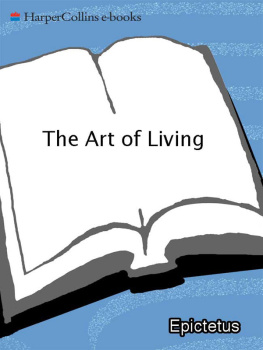
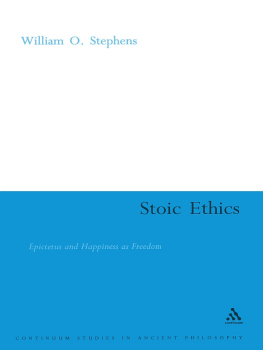
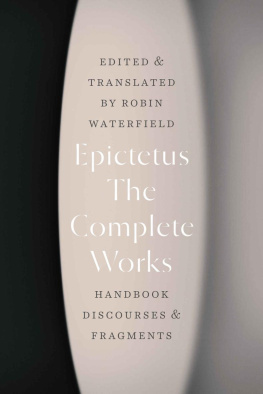
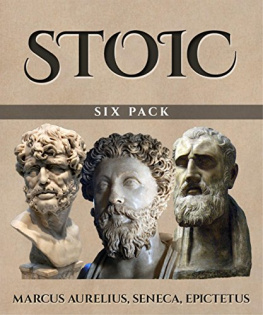
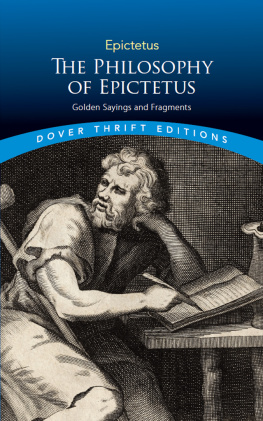
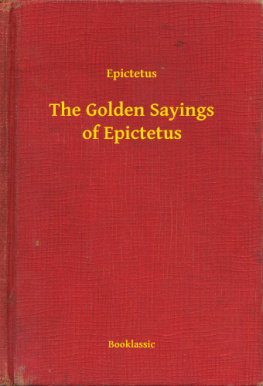
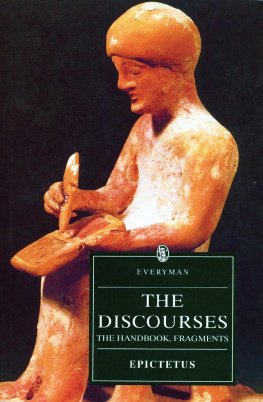
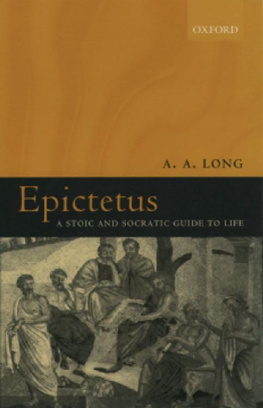
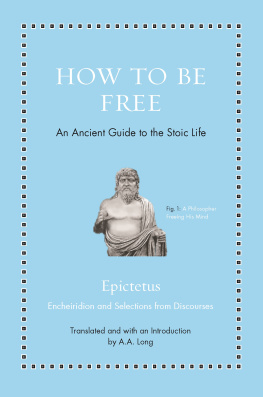
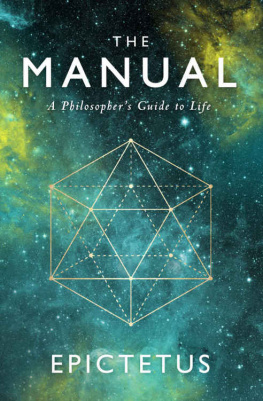

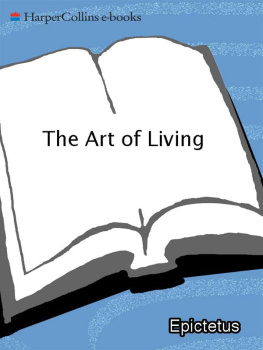



 , and HarperOne are trademarks of Harper Collins Publishers.
, and HarperOne are trademarks of Harper Collins Publishers.